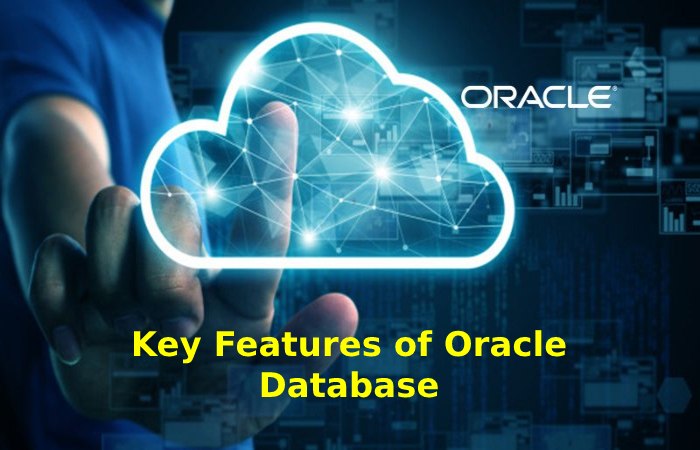Table of Contents
Introduction
Oracle is considered one of the best complete database systems, highlighting transaction support, stability, scalability, and also multi-platform support. We could define it as a client/server tool for Database management that is mainly used in large companies, designed so that organizations can control and manage large volumes of unstructured content in a single repository to reduce costs. Costs and risks related to the loss of information.
Key Features of Oracle Database

Reduce Operating Costs By 90%
With automation derived from Machile Learning, its Database helps you reduce the cost of managing, securing, and also maintaining your database. “Provision, scale and optimize protect, patch, and repair the database, all automatically without user intervention,” they explained in an infographic.
Protect yourself Against Data Breaches
Your data is more secure with it database solution because you can access encryption, key management, user access controls, activity monitoring, and auditing tools. And you can do all this through a straightforward procedure.
You can Manage Different Types of Data.
“Free application developers from complex transformations and redundant data with it Converged Database,” the company emphasizes in its documentation.
Deploy Where you Need it
One of the main advantages of Oracle Database is that you can deploy the database where you need it, whether in your data center, public cloud, or private cloud. It makes the database wholly flexible and also adaptable to the needs and context of the business.
Types of Oracle Database
Oracle Autonomous Database
It is an automated database solution that uses machine learning. Therefore all routine database tasks can be automated, improving performance, reliability, and security.
Oracle Base Database Service
“Oracle Base Database Service enables administrations to create and also manage complete its Database instances on Oracle Cloud Infrastructure (OCI). IT teams provision databases on virtual machines with block storage volumes, offering affordable cloud database services with select Oracle Database editions.
Oracle Exadata Cloud Customer
It Exadata Cloud Customer combines the power of it Exadata with the simplicity, flexibility, and affordability of an achieved database service in customer data centers. Therefore it is the coolest way to move existing it databases to the cloud as it offers full compatibility with existing Exadata systems and Exadata Cloud Service, they explain in the same article.
Oracle Exadata Database Service
It is the most secure architecture for running Database. Reducing your data center footprint can bring critical workloads to market faster.
Oracle MySQL Heatwave
It permits database administrators and application developers to “run OLTP and OLAP workloads directly from their MySQL database.”
The Oracle Database, the Most Required After on the Market
If you’re looking for a database solution for your business, you may be wondering why you should choose Oracle Database. And no one is better placed than Markus Michalewicz, Oracle’s senior director of product management, to set the record straight.
Oracle Database is one of the most acceptable options because:
- According to Portal Database, it has flexible standards
- Scale as needed.
- It has higher availability.
- best cost
- Secure future as it guarantees security and sufficient support.
Conclusion
Now more than ever, businesses need robust, scalable databases. Many use Oracle DB to power business applications for online transaction processing (OLTP), data warehousing, and also business analytics. IT teams also need the on-demand performance of these databases to support development, testing, analytics, and business continuity needs.
